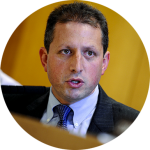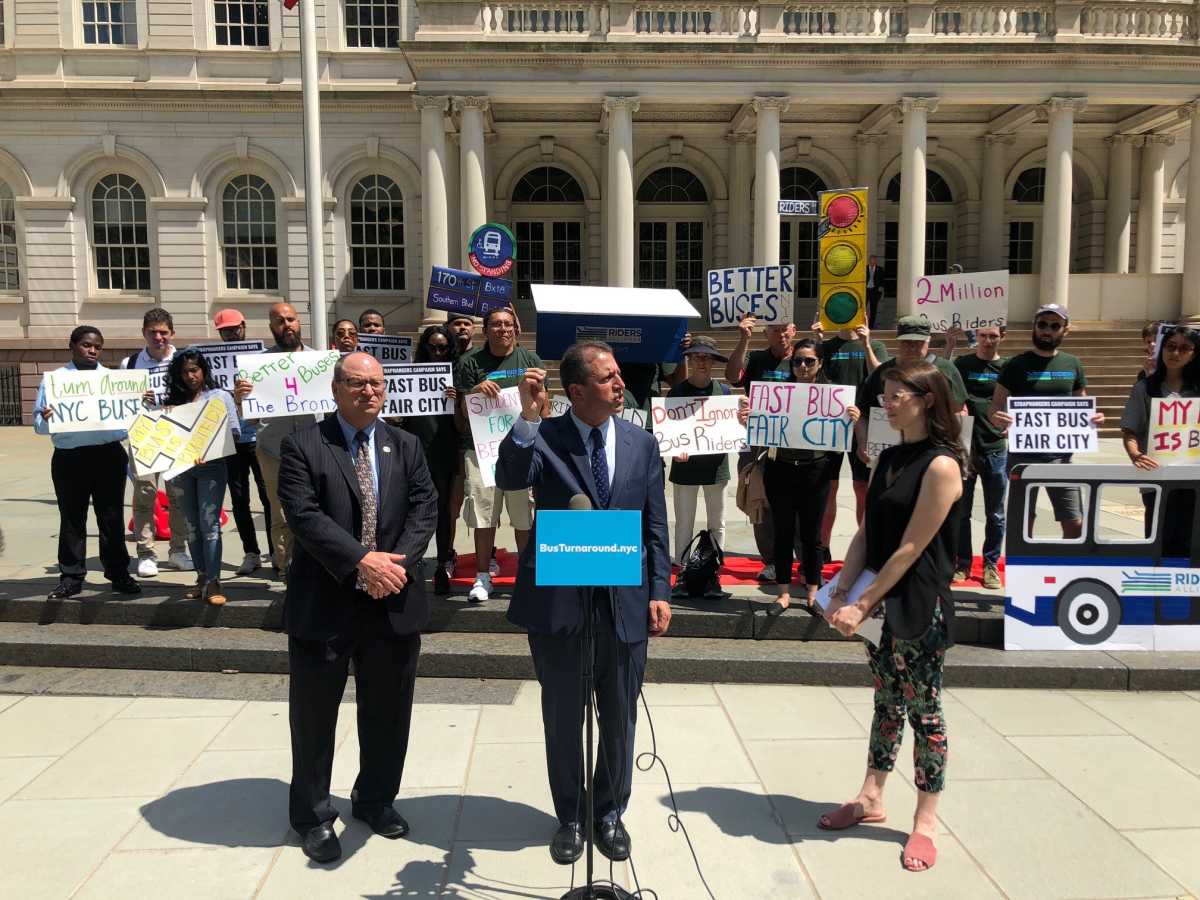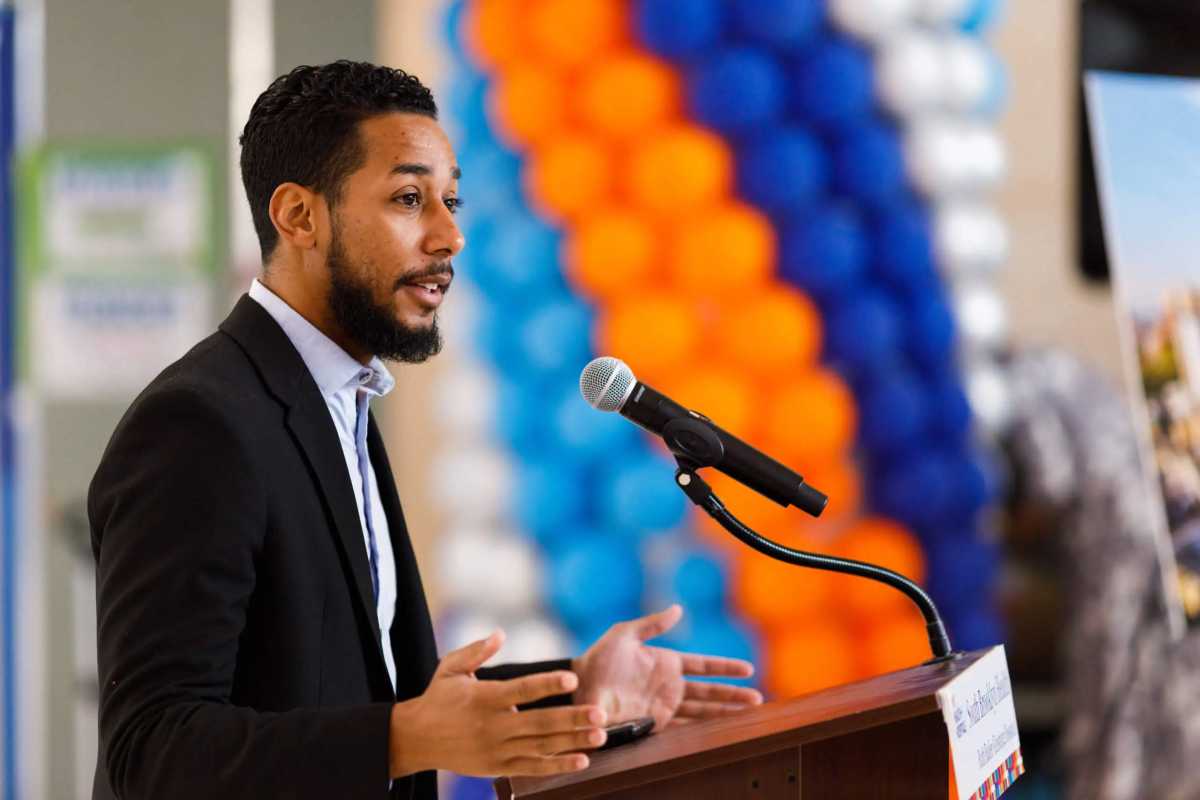A number of Brooklyn’s progressive elected officials yesterday lauded a newly proposed bus improvement plan. The Bus Turnaround Coalition recently presented a blueprint of transit policy changes that they argue would enhance quality of life and social inclusion for more than two million daily bus riders.
But at least one Southern Brooklyn city council member said the plan is like putting the cart before the horse.
Bus Turnaround Coalition members include the Riders Alliance, NYPIRG Straphangers Campaign, TransitCenter and Tri-State Transportation Campaign. The plan, dubbed “Fast Bus, Fair City” proposes a set of improvements under the mayor’s control including:
- 100 new miles of bus lanes in the next five years, with 60 miles in place by the end of 2021, prioritizing the most heavily traveled and congested routes
- Ramped up bus lane enforcement against vehicles that block bus lanes and reforms to bulk ticket discounts for truck fleet owners and other violators that receive large numbers of tickets
- “Green light” transit signal priority for buses at all possible intersections in the city by 2020
- Bus shelters and real-time passenger information (“countdown clocks”) at all bus stops
The advocates noted that on average, New York City bus riders have lower incomes and are more likely to be people of color (75% of riders) and immigrants (55% of riders) than New Yorkers at large. Bus riders, they argued, endure some of the city’s worst commutes, limiting their access to jobs and ability to spend time with their families. Improvements should be high on the priority list of a mayor with an avowed commitment to addressing the needs of all New Yorkers.


“It’s no secret that NYC’s buses are unreliable and slow, pushing those who can to choose other modes of transportation,” said City Council Member Brad Lander (D-Park Slope, Windsor Terrace, Kensington . “But still millions of New Yorkers – primarily low-income people of color and immigrants – have no choice but to rely on buses to get to work and school, to see family and friends, get to doctor’s appointments and access other critical services. If NYC is serious about its commitment to create a more fair and equal city, we must work together and redouble our efforts to improve and invest in our bus system.”
City Council Member Rafael Espinal (D-Bushwick, East New York) noted that buses are often the primary mode of transportation for many New Yorkers, especially those living in low-income communities, but for years, the service has been steadily deteriorating due to increased congestion, outdated technology, and a lack of enforcement.
“The Bus Turnaround Coalition’s City Bus Plan offers a roadmap for improved bus service throughout the five boroughs by tackling the twin problems of low speeds and bunching. I have been pushing the MTA and DOT to get serious about fixing our broken bus system, including switch to an electric bus fleet. Especially now, with the L train shutdown looming, we need to invest in a system that is environmentally friendly, efficient, and reliable. I commend the Bus Turnaround Coalition on their work, and look forward to bringing all stakeholders to the table to improve our buses,” said Espinal.
Other endorsing the plan included Brooklyn Borough President Eric Adams and City Council Member Carlos Menchaca (D-Sunset Park, Red Hook).

But City Councilman Chaim Deutsch (D-Sheepshead Bay, Manhattan Beach, Brighton Beach, Homecrest, Midwood), says before the plan is implemented, the city should address transportation-related quality of life issues in these communities before implementing their plan.
Deutsch, along with other Southern Brooklyn lawmakers, successfully delayed a plan to put a designated bus lane for a Select Bus Service (SBS) B82 along the narrow and commercial busy corridor of Kings Highway.
“I’m for bottom up solutions that take care of obstacles before putting in any dedicated bus lanes,” said Deutsch.
Deutsch went on to note a list of improvements he feels should be top priority before any final decisions are made for a dedicated bus lane including ticketing of illegally parked vehicles along busy corridors, dedicated truck delivery hours and efficient bus routes.
“Even before putting in bus lanes and implementing these changes you have to make sure all obstacles are taken care of,” said Deutsch, adding that once made, the changes should be done on a trial basis to determine if they work.










